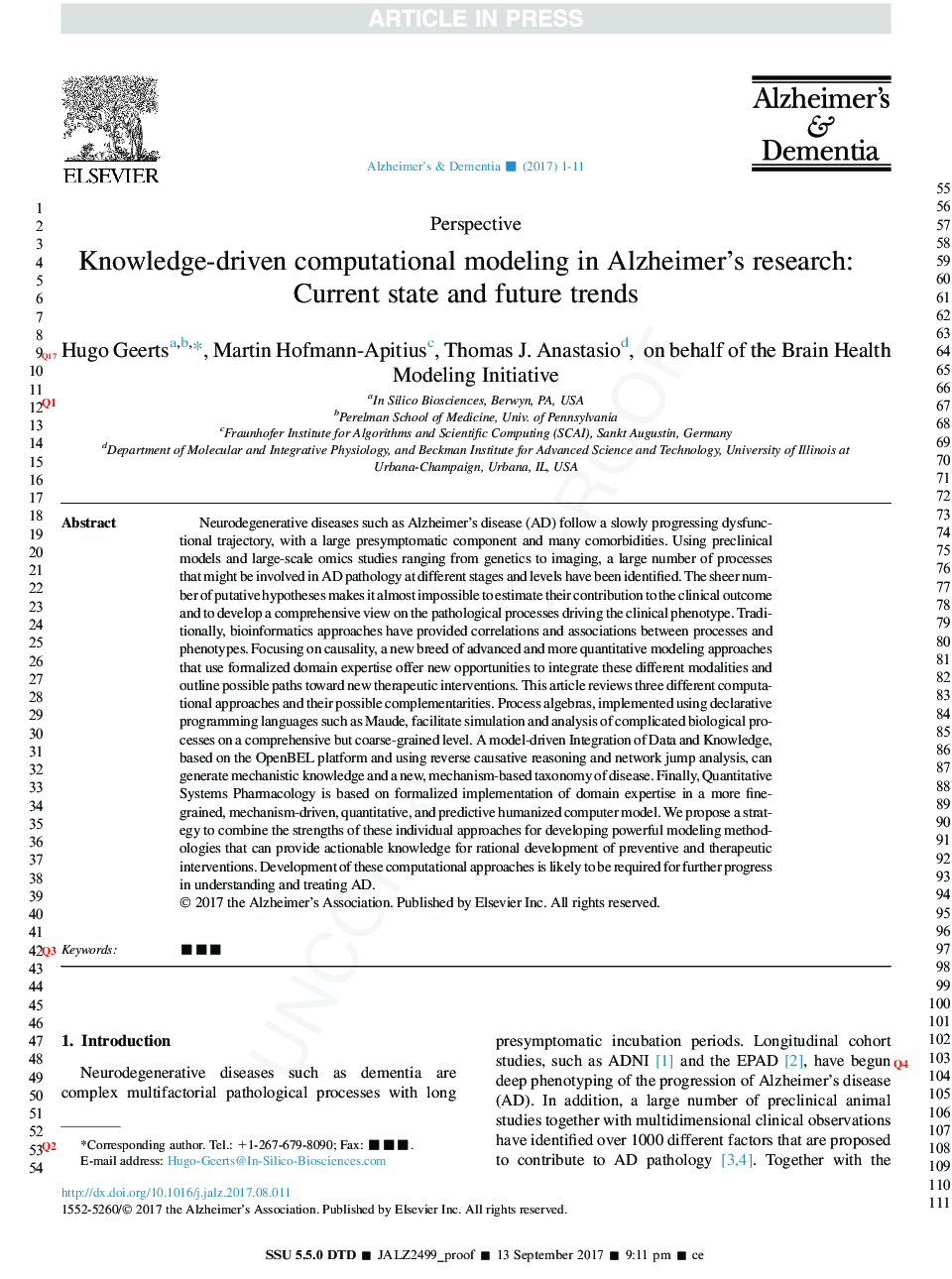| کد مقاله | کد نشریه | سال انتشار | مقاله انگلیسی | نسخه تمام متن |
|---|---|---|---|---|
| 8680093 | 1579253 | 2017 | 11 صفحه PDF | دانلود رایگان |
عنوان انگلیسی مقاله ISI
Knowledge-driven computational modeling in Alzheimer's disease research: Current state and future trends
ترجمه فارسی عنوان
مدل سازی محاسباتی مبتنی بر دانش در پژوهش بیماری آلزایمر: وضعیت فعلی و روند آینده
دانلود مقاله + سفارش ترجمه
دانلود مقاله ISI انگلیسی
رایگان برای ایرانیان
کلمات کلیدی
موضوعات مرتبط
علوم زیستی و بیوفناوری
علم عصب شناسی
عصب شناسی
چکیده انگلیسی
Neurodegenerative diseases such as Alzheimer's disease (AD) follow a slowly progressing dysfunctional trajectory, with a large presymptomatic component and many comorbidities. Using preclinical models and large-scale omics studies ranging from genetics to imaging, a large number of processes that might be involved in AD pathology at different stages and levels have been identified. The sheer number of putative hypotheses makes it almost impossible to estimate their contribution to the clinical outcome and to develop a comprehensive view on the pathological processes driving the clinical phenotype. Traditionally, bioinformatics approaches have provided correlations and associations between processes and phenotypes. Focusing on causality, a new breed of advanced and more quantitative modeling approaches that use formalized domain expertise offer new opportunities to integrate these different modalities and outline possible paths toward new therapeutic interventions. This article reviews three different computational approaches and their possible complementarities. Process algebras, implemented using declarative programming languages such as Maude, facilitate simulation and analysis of complicated biological processes on a comprehensive but coarse-grained level. A model-driven Integration of Data and Knowledge, based on the OpenBEL platform and using reverse causative reasoning and network jump analysis, can generate mechanistic knowledge and a new, mechanism-based taxonomy of disease. Finally, Quantitative Systems Pharmacology is based on formalized implementation of domain expertise in a more fine-grained, mechanism-driven, quantitative, and predictive humanized computer model. We propose a strategy to combine the strengths of these individual approaches for developing powerful modeling methodologies that can provide actionable knowledge for rational development of preventive and therapeutic interventions. Development of these computational approaches is likely to be required for further progress in understanding and treating AD.
ناشر
Database: Elsevier - ScienceDirect (ساینس دایرکت)
Journal: Alzheimer's & Dementia - Volume 13, Issue 11, November 2017, Pages 1292-1302
Journal: Alzheimer's & Dementia - Volume 13, Issue 11, November 2017, Pages 1292-1302
نویسندگان
Hugo Geerts, Martin Hofmann-Apitius, Thomas J. Anastasio, Brain Health Modeling Initiative Brain Health Modeling Initiative,
